Transcending Boundaries with Choral Music: Dr. Deanna Joseph and Ozkan Manav on Premiering “I'm Listening to Istanbul” at WSCM 2023
- Sinem Erenturk

- Jan 1, 2024
- 7 min read
Updated: Jul 12, 2024
The World Symposium on Choral Music (WSCM) 2023 held in Istanbul, Türkiye, witnessed a remarkable performance that left a lasting impact on both the audience and the artists themselves. The Georgia State University Singers, led by the talented conductor Dr. Deanna Joseph, had the honour of premiering Ozkan Manav's mesmerizing composition “I'm Listening to Istanbul.” This piece beautifully weaved together the rich tapestry of Turkish culture and contemporary choral music.
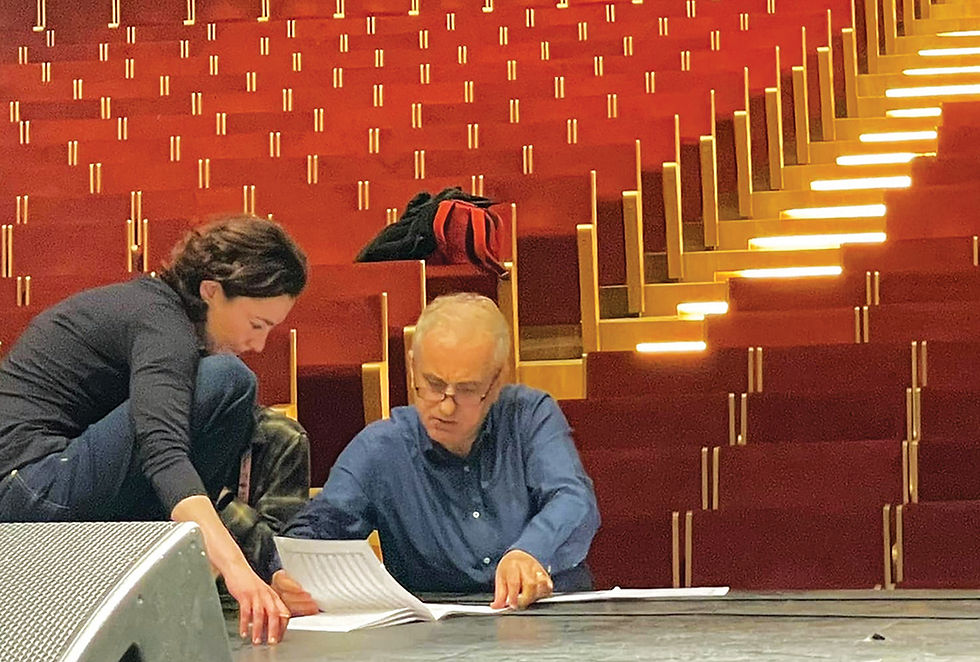
We had an exclusive interview with Dr. Deanna Joseph and the composer, Mr. Ozkan Manav, to gain insights into their unique perspectives on this unforgettable performance. We delved into their experiences, challenges faced during the preparation process, the significance of this contemporary choral composition, and the connection between the choir and Mr. Manav's music.
Mr. Manav shared his inspiration behind choosing Orhan Veli's iconic poem and the importance of infusing modern Turkish literature into choral music. Dr. Joseph discussed the choir's journey in mastering this intricate piece, embracing the fusion of traditional and avant-garde elements, and their meaningful connection with Turkish culture.
Together, they shed light on the universal language of music and the profound impact it has in uniting people across the world.
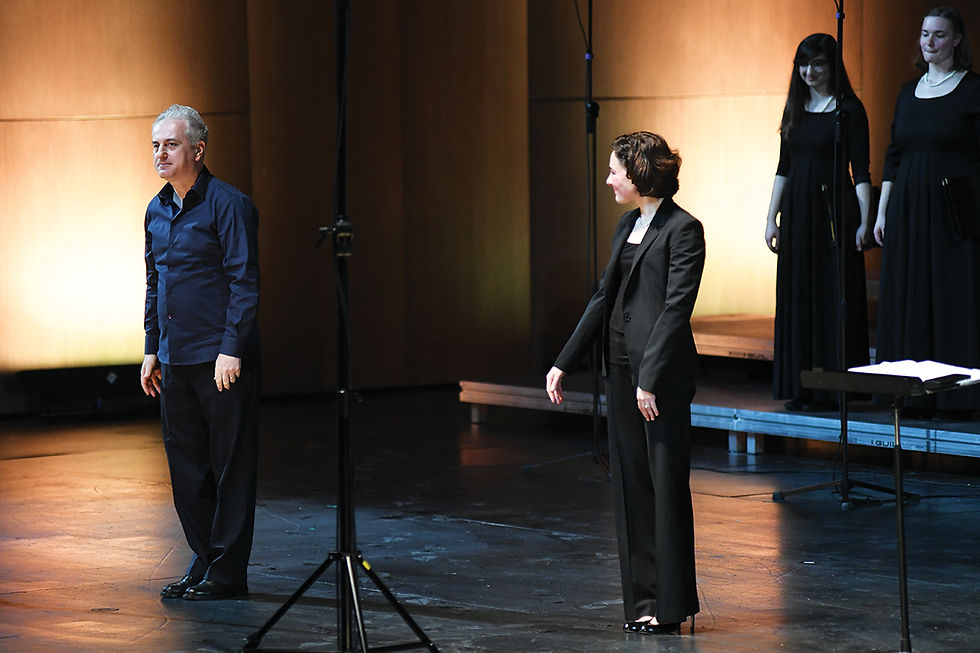
How did you experience this performance from your perspectives, as the conductor of the choir and the composer of this contemporary piece?
Joseph: It was a tremendous honor to premiere Ozkan Manav’s “I’m Listening to Istanbul” at the 2023 World Symposium on Choral Music. The experience was one that the singers and I will cherish for a lifetime … to premiere this stunning and innovative piece about Istanbul … in the city for which it was written, and for so many people from Türkiye made for a very deep and fulfilling performance experience. So many of the effects in the piece – the birdcalls, for example – really came to life to us once we landed in the city and started walking around – we could finally hear the sounds of the city for ourselves. Many of the singers commented instantly – “I hear the birds … they are right here!”
Manav: “I’m Listening to Istanbul" is a composition for an eight-part choir and two reciters. Deanna Joseph encouraged me, noting that they have experience with eight-part choral pieces. However, in this composition, there is also a counterpoint involving two reciters. The reciters, featuring a whispering female voice followed by a male voice in a normal tone, are reciting contemporary Turkish poet Orhan Veli’s renowned poem.
Georgia State University Singers offered a beautiful premiere of my piece in our newly-built Atatürk Cultural Centre’s Grand Hall. The hall was packed and the audience embraced us heartily. The ovation at the end of the performance was not just for my piece but for all of us, the talented singers, their fascinating conductor, their well-thought out, brilliantly prepared program, and my piece, all together. This is what I felt. Quite a lot of listeners congratulated me after the concert, many of whom I have never met before.
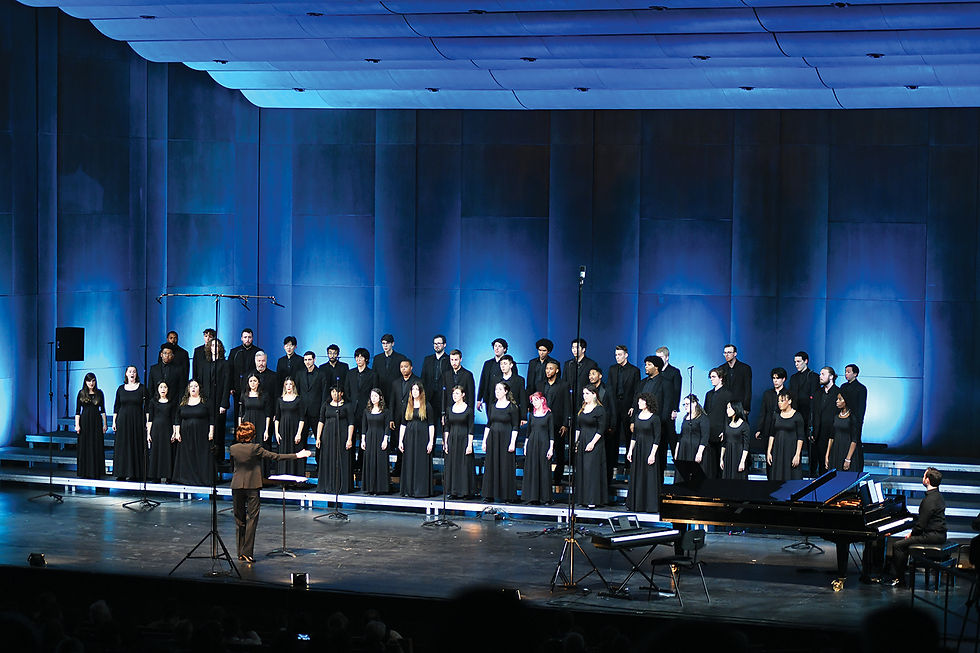
What was the preparation process like for this piece? Were there any notable distinctions in preparing for it compared to a classical choral piece?
Joseph: The piece challenged us in many ways – both the pitches and rhythms were challenging and the Turkish text was new to all of the students. We located a native speaker in Atlanta and invited her to make a recording of the text and we used this to practice proper pronunciation. Tempo was also a challenge, as the piece had to be performed to a recording of spoken text in Turkish which made specific timings important. Once pitches and rhythms were solidified, we practiced with the recording a lot to make sure the timing came out perfectly. The extended vocal techniques in the piece were an additional element ... The singers enjoyed learning how to execute them and fully bring the piece to life.

Composing for choirs presents unique challenges and opportunities. What do you find to be the most significant aspects of writing compositions specifically for choirs?
Manav: I remember a comment by a flautist in a documentary about contemporary flute performance. He stated that the flute, which directly reflects the breath of the performer, is the most unmediated, the most direct of musical instruments. Yet the human voice is even more direct. It reflects a human being’s breath in a most direct manner and offers his/her feelings in its clearest form.
The human voice is the direct extension of the human heart. In the 2023 meeting of the World Symposium on Choral Music, which was my first involvement in this massive organization, I was surprised to see how easily people get close to each other, becoming friends, mingling with each other. I shouldn’t have been surprised because what brought them together was the human voice. When singing together, humans are becoming a single new being. This is the unique aspect of writing a composition for choir.
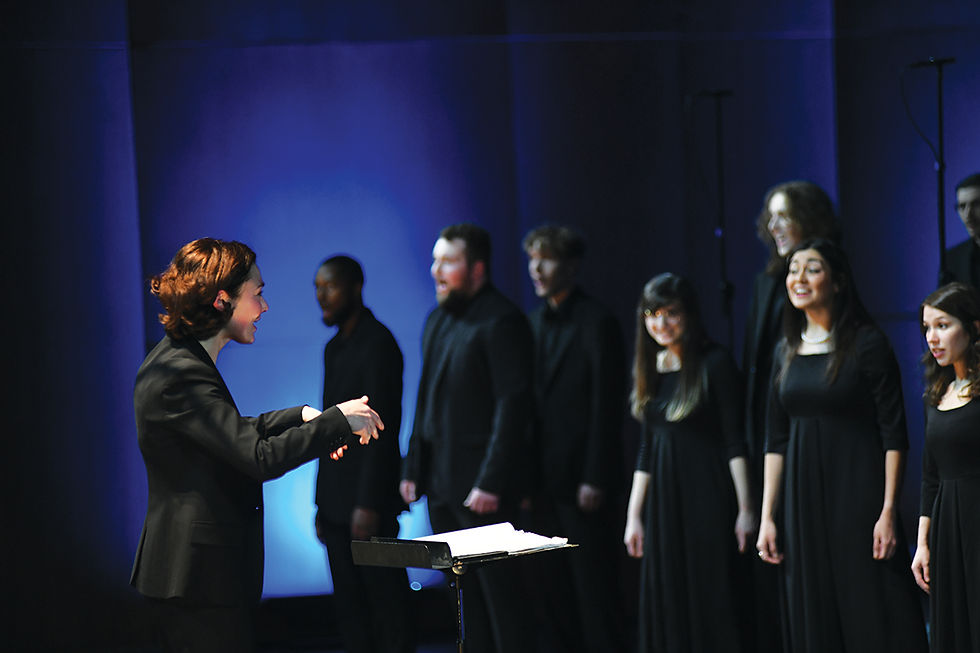
How did the choir perceive Manav’s music and connect with it, especially considering its contemporary and Turkish elements, and its being in the Turkish language?
Joseph: The choir had not performed a piece like this before, and we all learned a great deal from the experience. Manav’s music is highly specific – every detail is in place and there are clear instructions for how to execute every element. This piece was a blend of new and old, of traditional and avantgarde, of sentimental and stark. I loved the uniqueness of the compositional style.
We were able to listen to recordings of Turkish choirs sing the traditional tune that is woven through the piece which provided context and helped us a great deal with style and pronunciation. It was amazing to hear feedback after the performance from Turkish members of the audience who said “I heard the tune in there!”. That really meant a lot to us and made the performance even more impactful.
Mr. Manav, typically, your compositions incorporate elements from Turkish folk music or Turkish classical music. Could you explain the reason behind your decision to use a contemporary iconic poem from Turkish culture, like Orhan Veli's poem this time?
Additionally, could you share what this poem means to you and its central theme for those who may not be familiar with it?
Manav: I decided to choose a poem from modern Turkish literature, which I know far better than any other literature. While wandering through Orhan Veli’s poems, I thought that “I’m Listening to Istanbul” might have a special meaning for WSCM’s Istanbul meeting. While Istanbul (audience) was listening to the voices of the world, choral music lovers from all over the world would listen to Istanbul through Orhan Veli’s verses, encircled with my music. While working on the piece I kept thinking that the images in Orhan Veli’s poem, written exactly 75 years ago, still retain their freshness and vitality. These images were intertwined not only with visual scenery of the city and its people but also with its sounds. Orhan Veli’s images in this poem were ready to be transferred into music. All I did was to surround them, embrace them with human voice through my ears.
How does it contribute to the world of choral music on a broader scale and in terms of promoting contemporary compositions from different parts of the world?
Joseph: Conducting a piece from Türkiye held a special significance for me. It was an honour and a joy to bring to life the premiere of a commissioned work in its country of origin. I am grateful to WSCM for bringing all of the commissioned works to fruition and supporting the creation and performance of new choral works from across the globe. This is part of what I see as the role of a conductor and of our professional organizations.

About the conductor Dr. Deanna Joseph & Georgia State University Singers
Dr. Deanna Joseph is Professor of Music and Director of Choral Activities at the Georgia State University School of Music where she conducts the University Singers and leads the master’s program in choral conducting. A recent review of her work states – “[t]he choir sings with great musicality, excellent intonation, clear diction, and a healthy and beautiful pallet of tone colors…” (The Choral Scholar).
The international award-winning Georgia State University Singers (Atlanta, Georgia, USA) is the School of Music’s premier vocal ensemble. Selected by competitive audition, the choir of forty-five singers represents the diverse population of Georgia State University. In April 2023, the choir was selected as one of ten ensembles from across the globe to perform at the WSCM in Istanbul, Türkiye. In May 2017, the University Singers won first place in the renowned Marktoberdorf International Chamber Choir Competition during a tour of Austria and Germany. In May 2013, the University Singers competed in the Florilège Vocal de Tours where they placed second overall in the mixed choir category. The choir’s three professional recordings, Evening Hymn (2016), Heavenly Display (2019) and Requiem (2023) were released by Gothic Records are available on all streaming platforms including iTunes and Spotify. https://music.gsu.edu/choir/
About the composer Ozkan Manav
Born on May 20, 1967 in Mersin, Ali Özkan Manav studied composition in Istanbul at the Mimar Sinan University State Conservatory with Ahmed Adnan Saygun and Ilhan Usmanbaş. Upon receiving a full scholarship from the Higher Education Council in Ankara, he made his doctoral studies with Lukas Foss and Marjorie Merryman at Boston University (1996-99). He has been teaching at his alma mater, Istanbul State Conservatory of Mimar Sinan Fine Arts University since 1991.
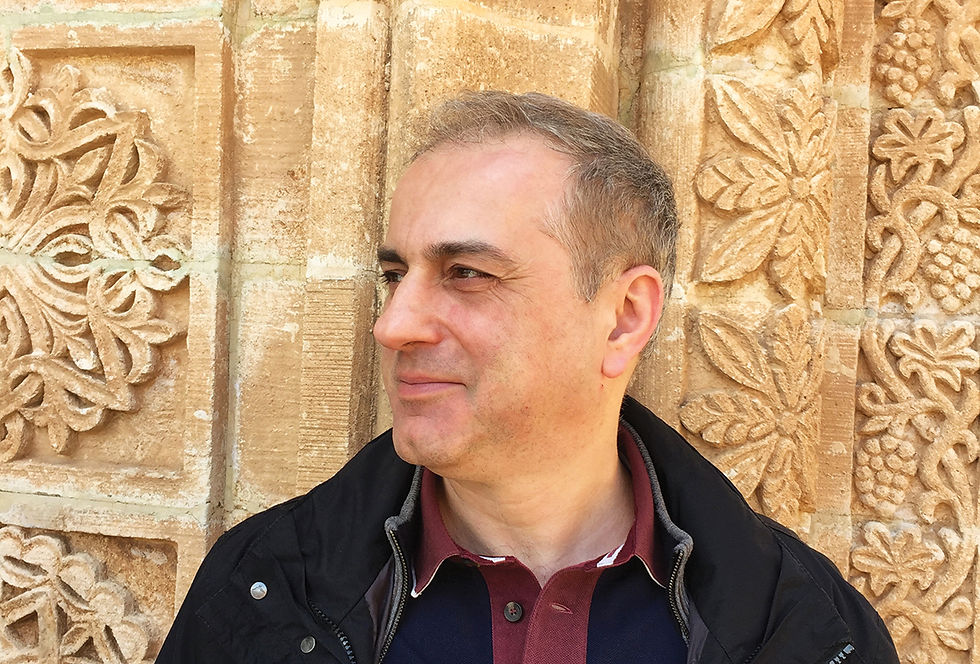
His orchestral work Sforzati has been premiered in Munich with the Bavarian Radio Symphony Orchestra in musica viva concert series in 1999. Upon receiving the Deutsche Welle Composition Prize in 2002 another orchestral piece, Portamento Lento has been premiered in Beethovenfest in Bonn. His orchestral rendering of Ali Ekber Çiçek’s Haydar Haydar has been premiered by the Turkish National Youth Philharmonic Orchestra in their 2017 European tour and performed by the London Philharmonic Orchestra in the Presidential Symphony Orchestra’s new concert hall in Ankara and in the opening concert of Istanbul’s Atatürk Cultural Center in Fall 2021. https://ozkanmanav.com

Sinem Taşseven Erentürk began her career as a young journalist at Türkiye's only English-language newspaper at the time. She then moved to the pharmaceutical industry, where she worked for 15 years in various positions, primarily focusing on strategy and multi-channel marketing in the latter years. Her life changed dramatically when she became a mother to twin boys and relocated to London with her family six years ago where she is a member of a local writers’ group in Richmond, London. Sinem has been singing since the age of eight in various choirs, ranging from children's, girls', youth choirs in her hometown of Ankara, to mixed choirs in Istanbul. Currently, she is part of a philharmonic choir in south-west London. Recently, Sinem assumed the role of Head of Communications for the successful launch of WSCMIstanbul2023. As a choral enthusiast and a member of the editorial board of IFCM, she’s excited to bring new perspectives to the promotion of choral music worldwide. She sees choral music, along with the collective arts, as a crucial catalyst for a genuinely connected world. sinemerenturk@gmail.com
Edited by Bethany Dent, UK










Comments